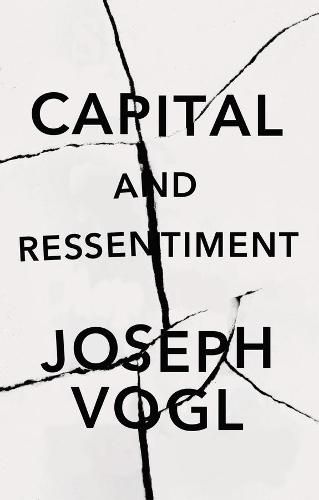Readings Newsletter
Become a Readings Member to make your shopping experience even easier.
Sign in or sign up for free!
You’re not far away from qualifying for FREE standard shipping within Australia
You’ve qualified for FREE standard shipping within Australia
The cart is loading…






The proliferation of social media has provided ideal conditions in which feelings of anger and frustration can be expressed and shared, forming a deep pool of ressentiment that is being drawn upon and exploited by populist and authoritarian leaders.
In his new book, Joseph Vogl shows how this dynamic is rooted in the fusing of finance capital and information in a new form of information capitalism that is reshaping the affective economy of our societies. The capital accumulation strategies of powerful new platforms and social media are pushing people into fragmented, opposing and conflictual communities where ressentiment is nurtured and grows, cutting off and closing down pluralistic spaces of action. The feelings of grievance and rejection generated by capitalism are redirected into attacks on migrants, foreigners and others, thereby deflecting their critical potential and bolstering rather than undermining the system that is their source. It is the cunning of ressentiment that provides the key to understanding why, despite the profusion of communication in our social media age, global finance and information capital can be neither understood nor attacked as a totalizing power.
This brilliant analysis of the ways in which information capitalism is transforming the affective economy of our societies will be of great interest to students and academics in sociology, politics, political economy, media and communications and cultural studies.
$9.00 standard shipping within Australia
FREE standard shipping within Australia for orders over $100.00
Express & International shipping calculated at checkout
The proliferation of social media has provided ideal conditions in which feelings of anger and frustration can be expressed and shared, forming a deep pool of ressentiment that is being drawn upon and exploited by populist and authoritarian leaders.
In his new book, Joseph Vogl shows how this dynamic is rooted in the fusing of finance capital and information in a new form of information capitalism that is reshaping the affective economy of our societies. The capital accumulation strategies of powerful new platforms and social media are pushing people into fragmented, opposing and conflictual communities where ressentiment is nurtured and grows, cutting off and closing down pluralistic spaces of action. The feelings of grievance and rejection generated by capitalism are redirected into attacks on migrants, foreigners and others, thereby deflecting their critical potential and bolstering rather than undermining the system that is their source. It is the cunning of ressentiment that provides the key to understanding why, despite the profusion of communication in our social media age, global finance and information capital can be neither understood nor attacked as a totalizing power.
This brilliant analysis of the ways in which information capitalism is transforming the affective economy of our societies will be of great interest to students and academics in sociology, politics, political economy, media and communications and cultural studies.